Carl Steinitz in Dimensions Journal
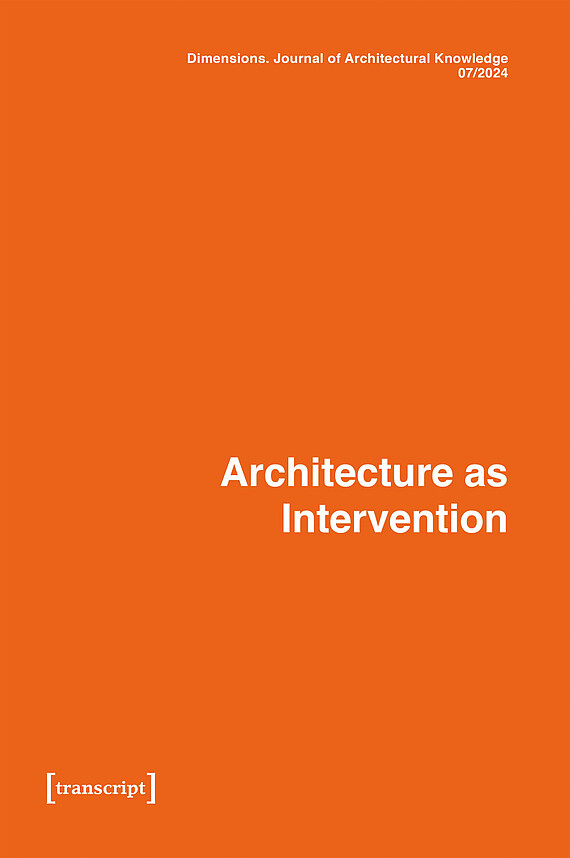
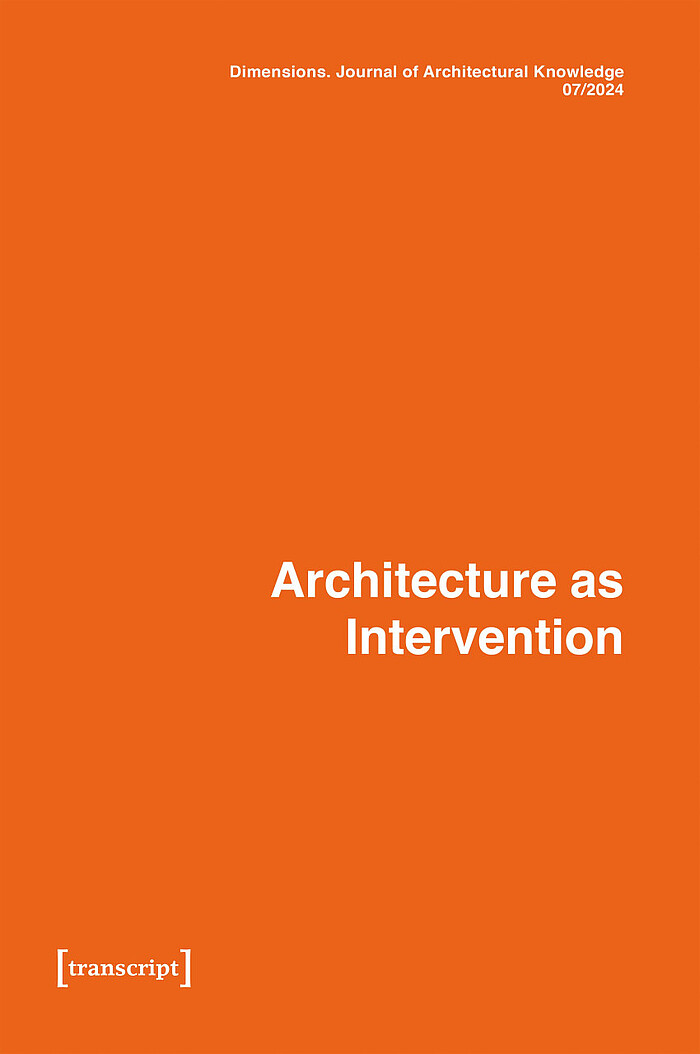
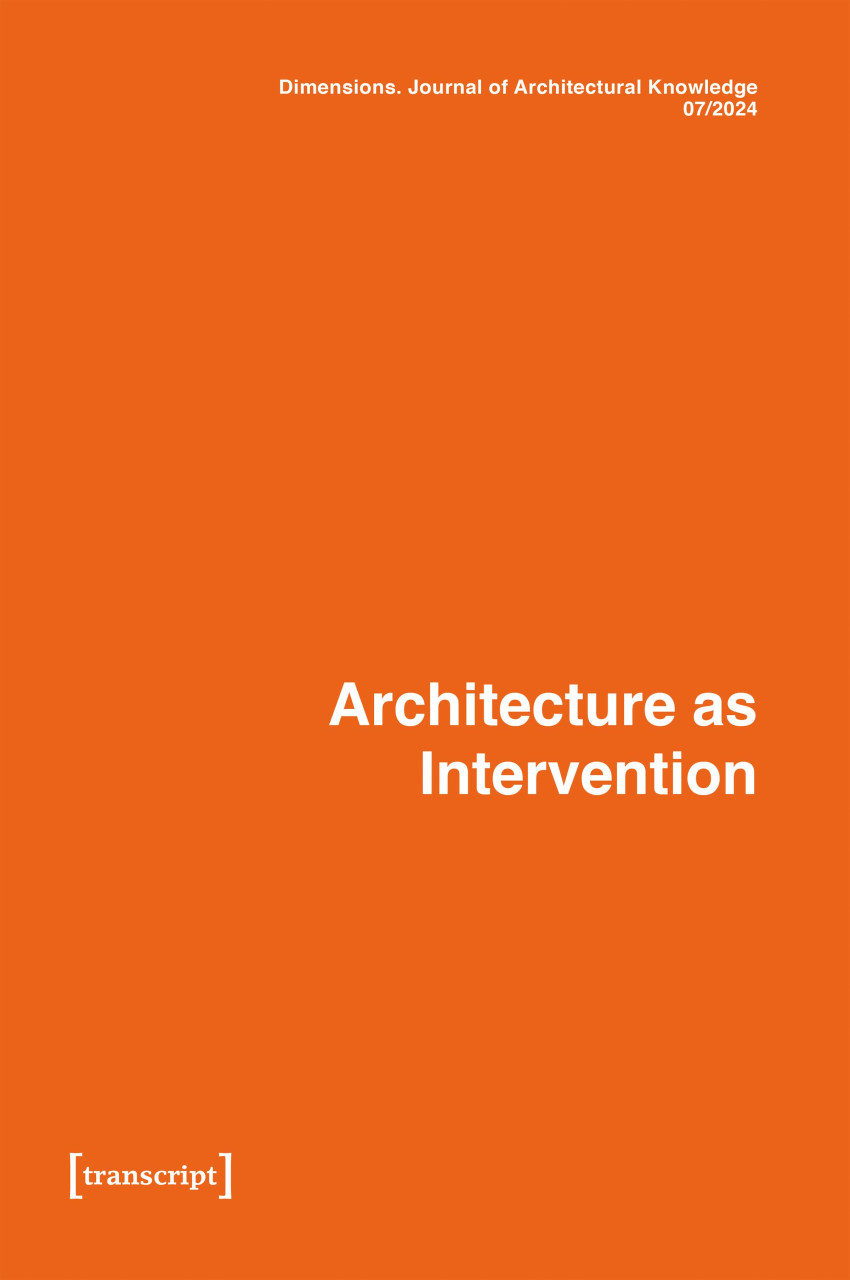
03.2025 Nathalie Bredella and Grayson Bailey's interview with Carl Steinitz was published in the issue "Architecture as Intervention" of the Dimensions Journal of Architectural Knowledge (view issue).
The conversation addresses the foundational years of the Laboratory for Computer Graphics and Spatial Analysis at Harvard and the ongoing influence of computational methdology and pedagogy which was partially pioneered there by Steinitz and others.
Desire and Denial
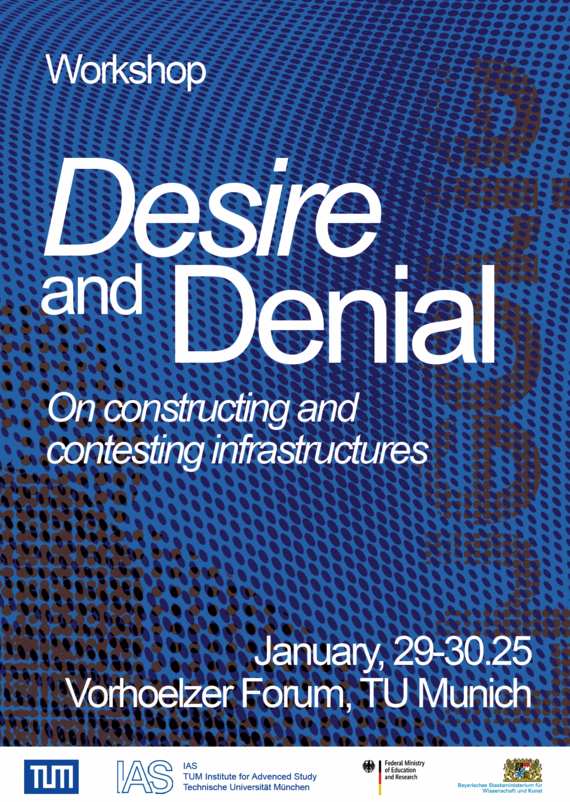
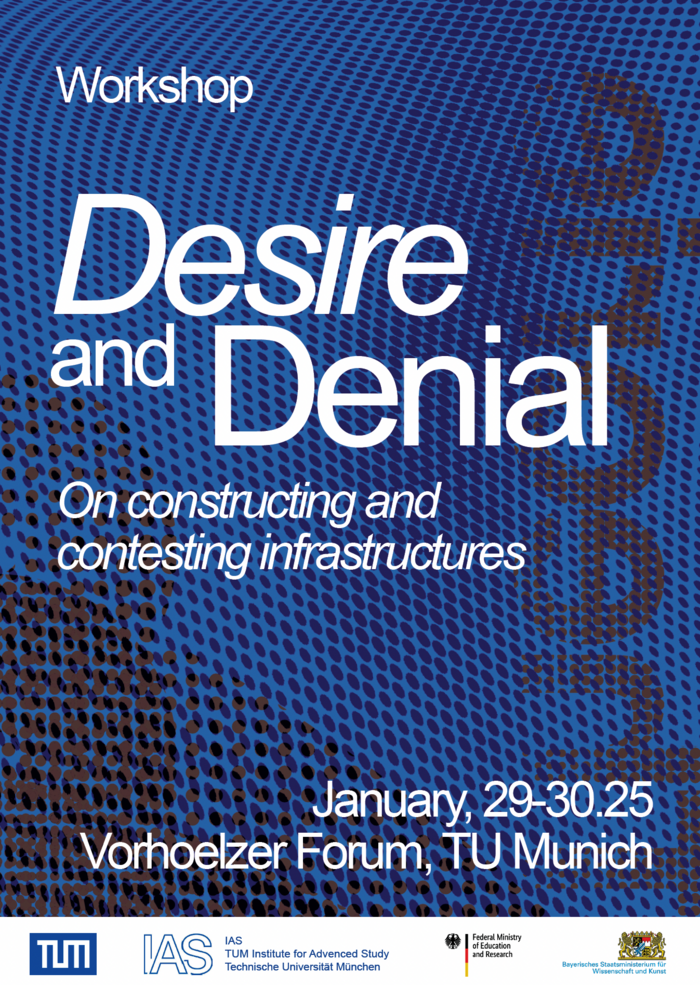
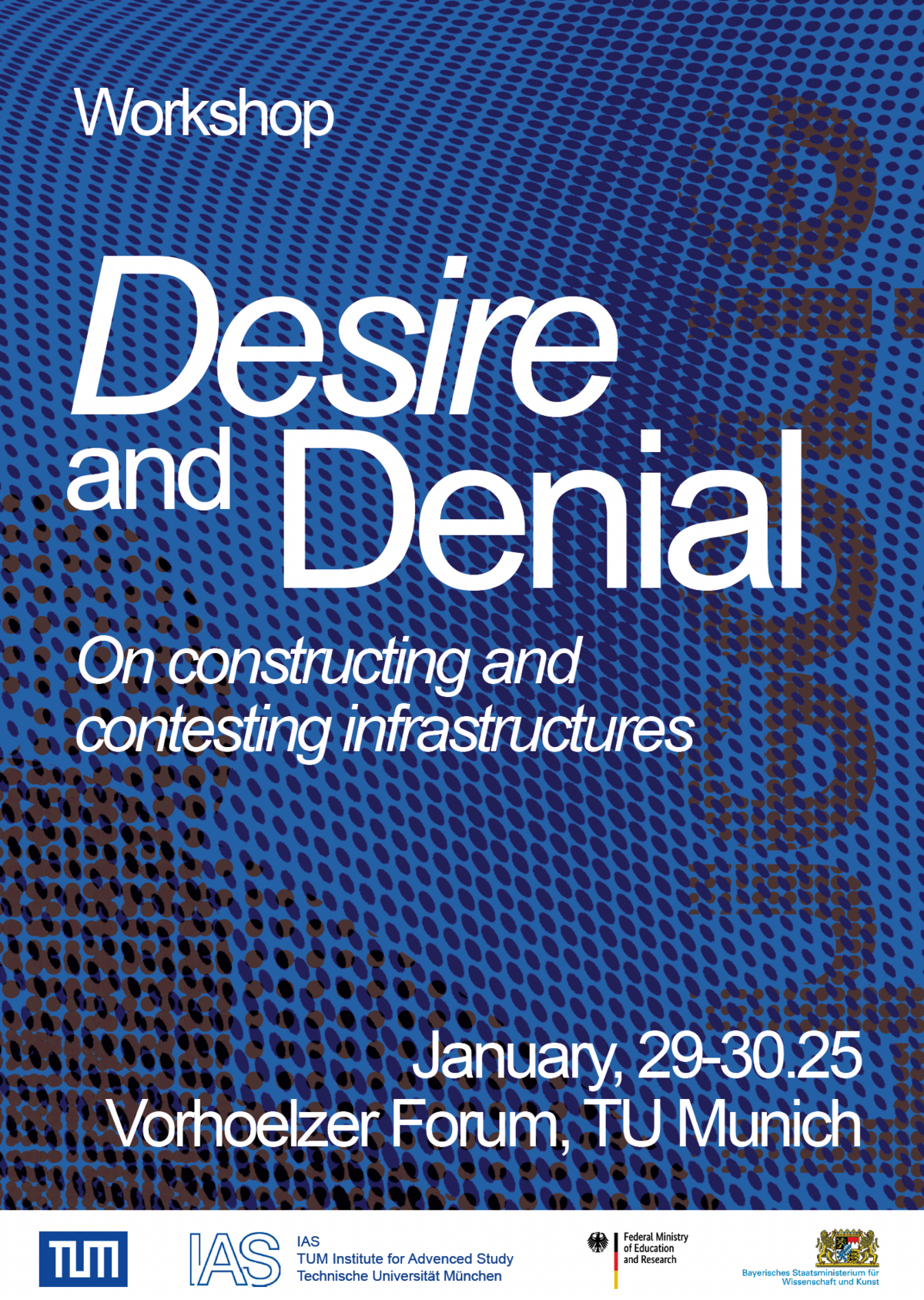
01.2025 Workshop organized by TUM IAS Anna Boyksen Fellow Nathalie Bredella in collaboration with her host Dietrich Erben (TUM School of Engineering and Design), Grayson Bailey (Leibniz University Hannover) and supported by Simon Rötsch. Visit Program
Humboldt Fellowship for Prof. Dr. Daniel Cardoso Llach
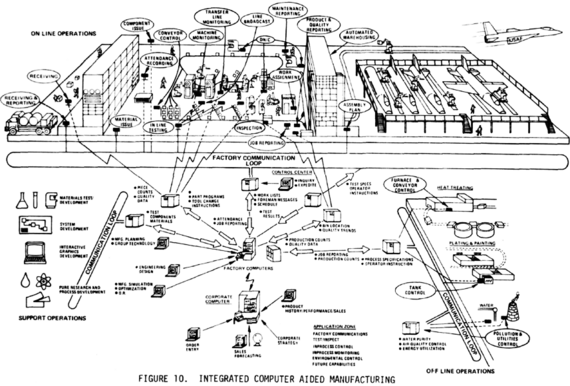
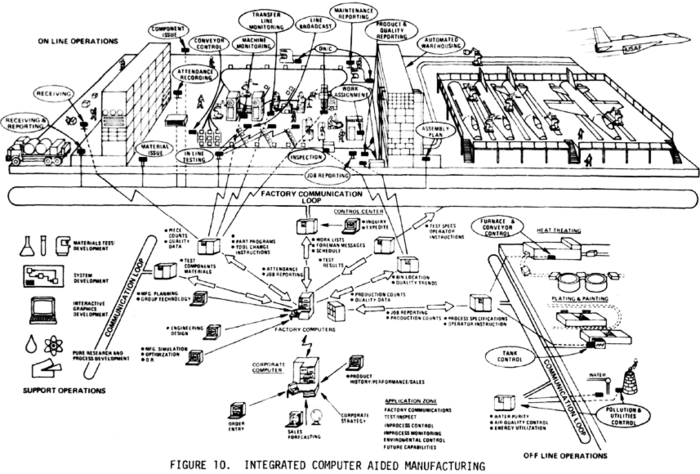
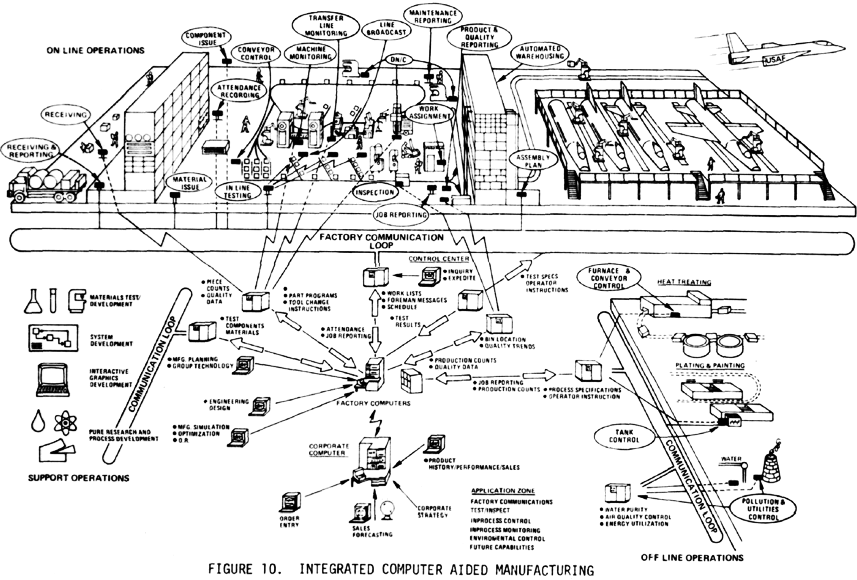
12.2024 The chair of Architectural Theory welcomes Prof. Dr. Daniel Cardoso Llach, recipient of the prestigious Humboldt Fellowship of the Alexander von Humboldt Stiftung/Foundation.
Extending his previous work documenting the postwar nexus of design and computing in North-America and Britain, Daniel Cardoso Llach’s current project Provincializing the digital: Computational Design in Germany after 1950 will examine how German researchers, government, and corporate actors conceptualized and gave meaning to computational ideas and methods in Germany’s design and architectural contexts during this period. Drawing on recent science and technology (STS) and media studies perspectives that complicate a dominant view of computational systems as neutral and universal, the project will help reveal how computational design ideas and methods in Germany emerged in conjunction with specific institutional, political, and material histories. Instead of asking what computation and software might mean ‘for’ architecture and design in Germany, Cardoso Llach is interested in asking what these technologies might mean ‘from’ there.
Image Credit: Wisnosky, “ICAM Program Prospectus,” AIR FORCE MATERIALS LAB WRIGHT-PATTERSON AFB, Ohio, ADA051670, Mar. 1978. Accessed: Jul. 02, 2024. p. 18
Agentive Matter(s)
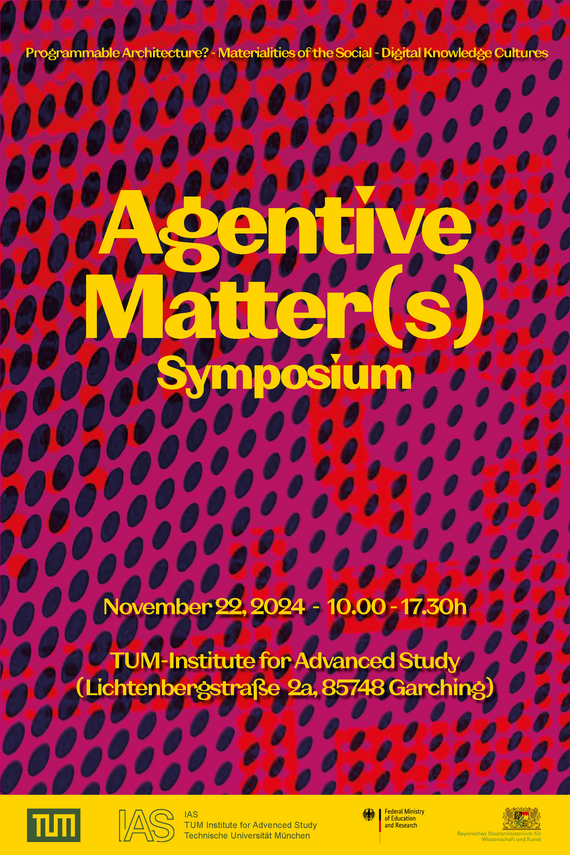
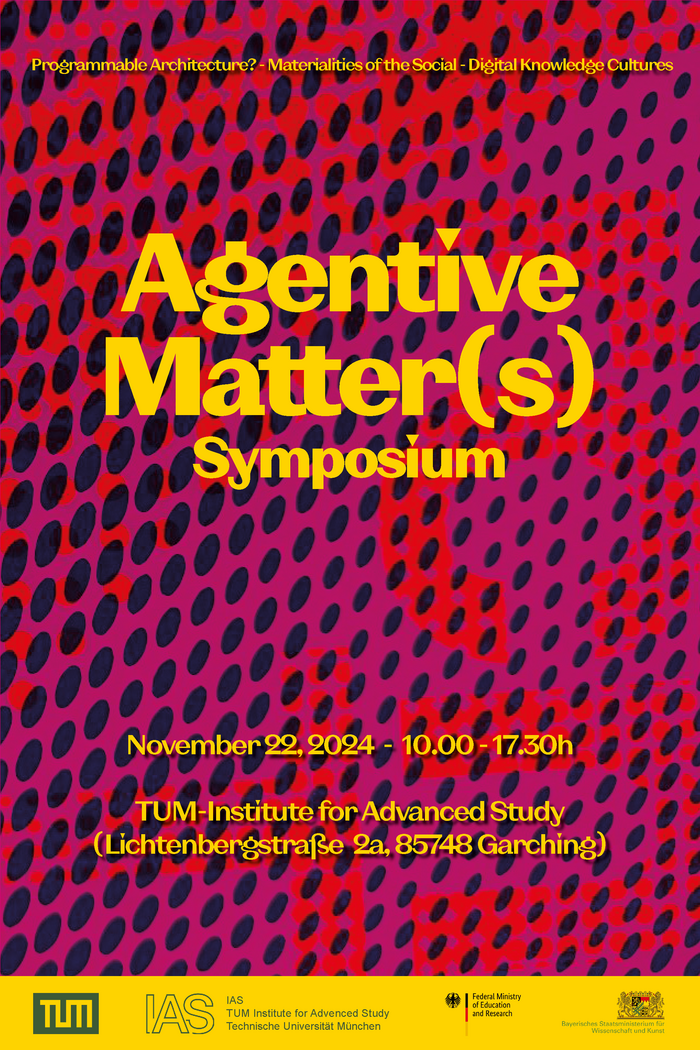
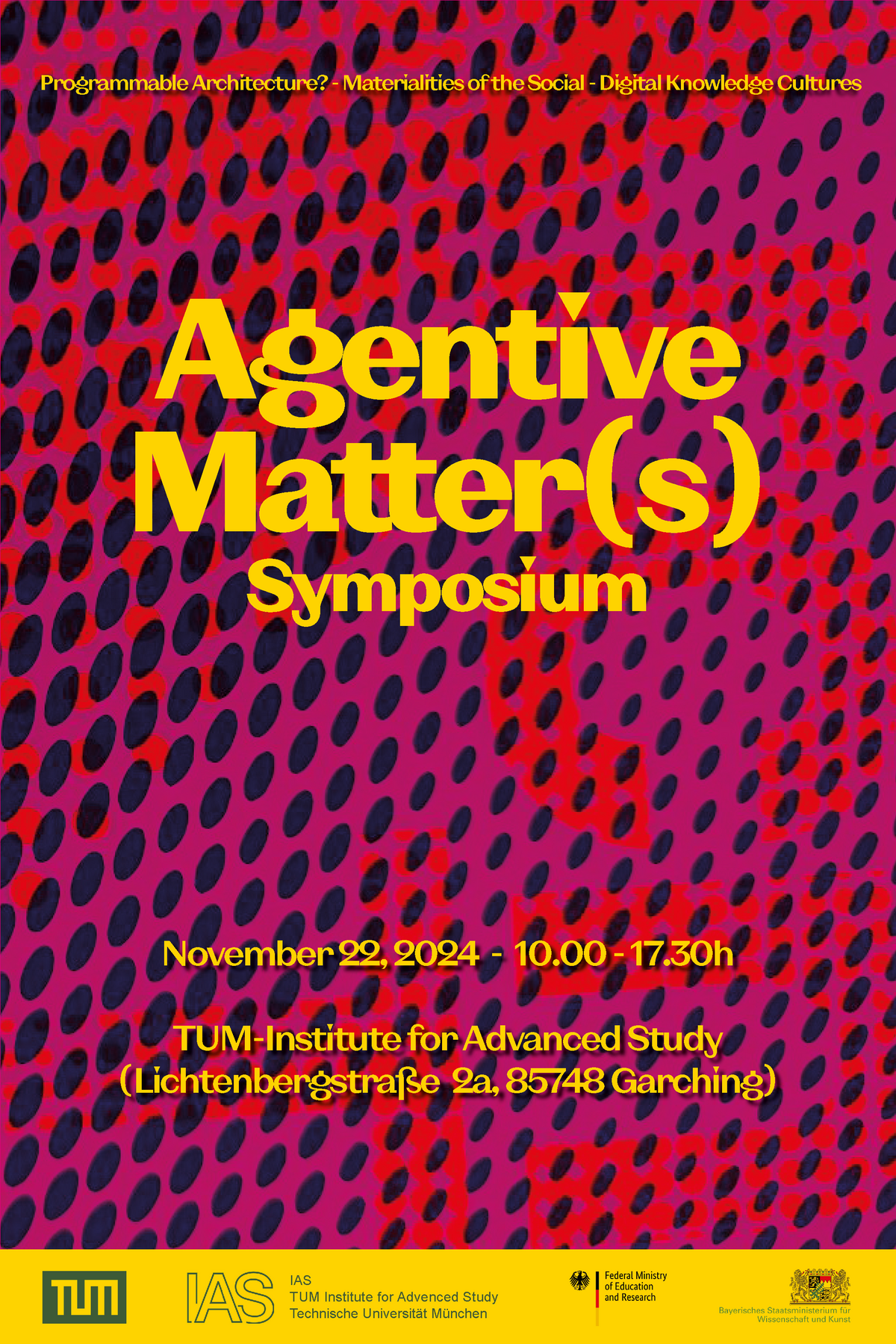
11.2024 Workshop organized by TUM IAS Anna Boyksen Fellow Nathalie Bredella in collaboration with Pierluigi D’Acunto (TUM School of Engineering and Design and TUM IAS), Kathrin Dörfler (TUM School of Engineering and Design) and Anna Keune (TUM School of Social Sciences and Technology and TUM IAS) supported by Simon Rötsch. (View Program)
Prepared Instruments and Craft Genealogies
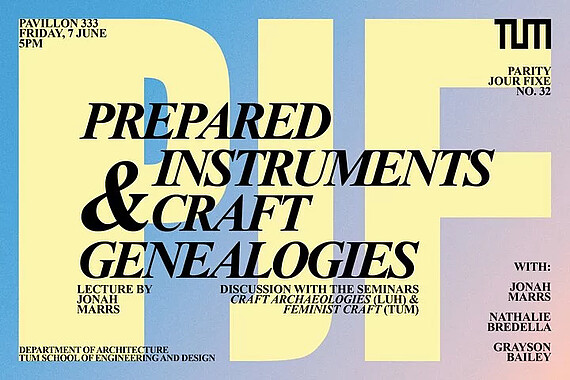
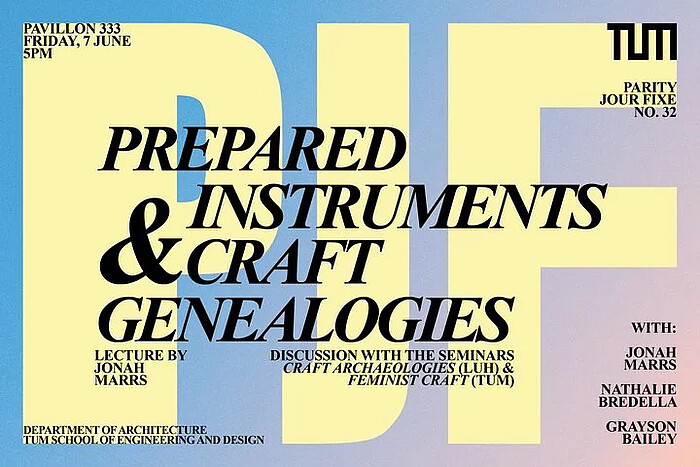
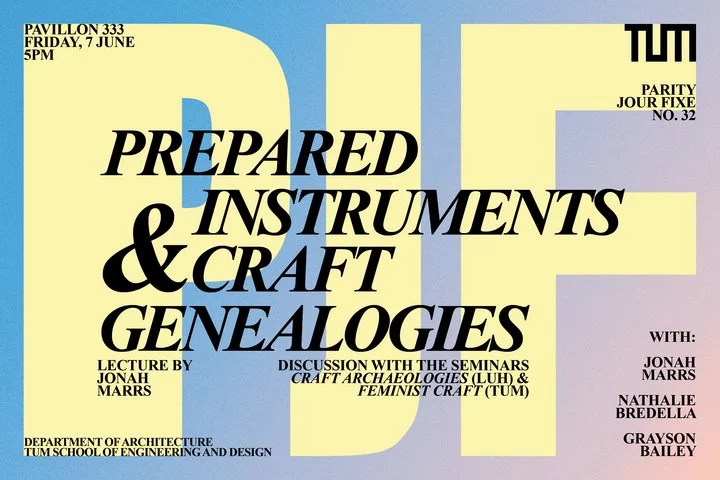
06.2024 As a part of the Parity Jour Fixe No. 32 at TU-München, Grayson Bailey, Nathalie Bredella and Jonah Marrs (Base Digitale, Beaux-Arts Paris) presented works related to technologies, craft and practice. In his lecture "Prepared Instruments", Marrs discussed artistic experimentation with media technology in the 1960s and 1970s, along with his own video synthesis devices in the lineage of prepared instruments. (View Program)
Link it and Move it
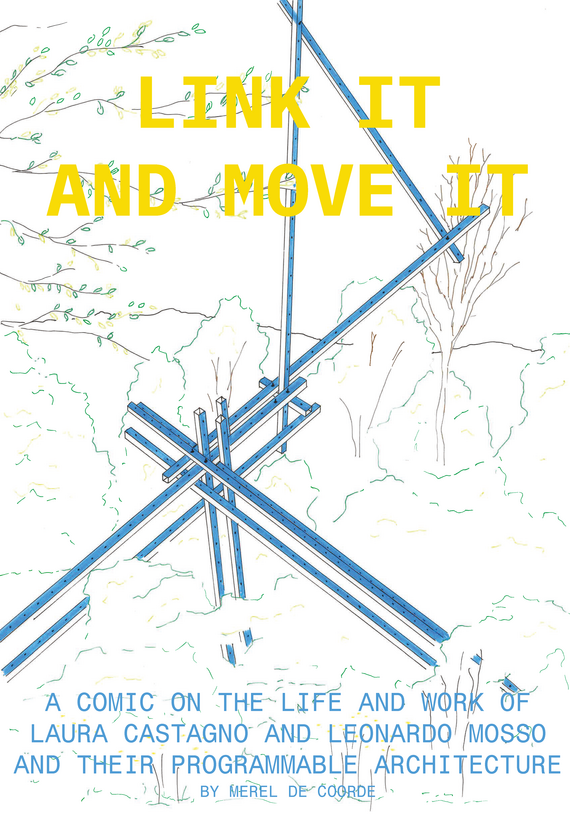
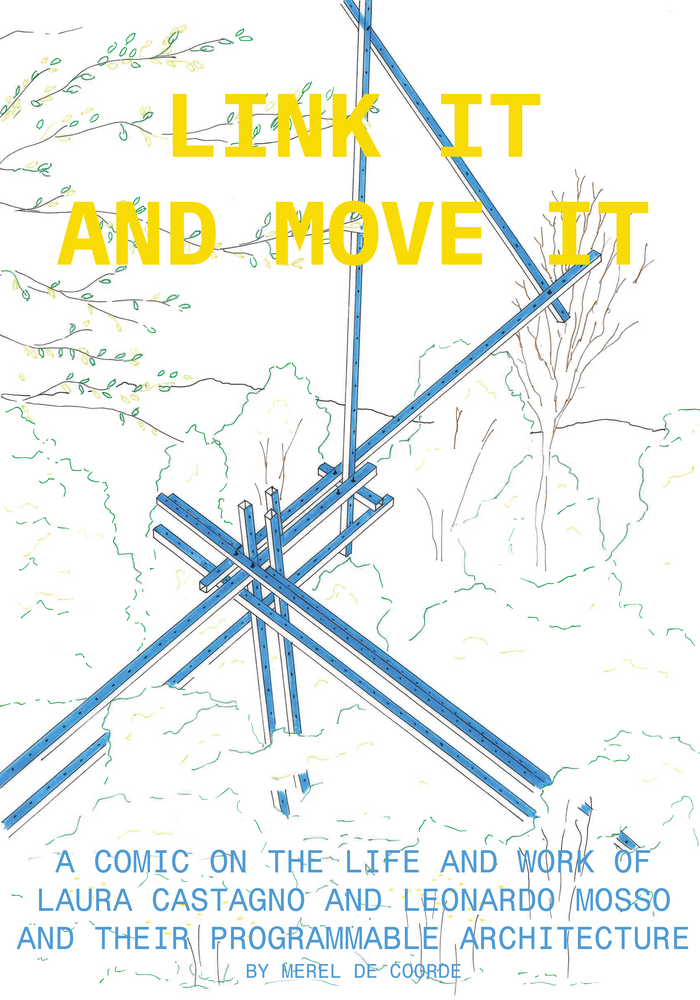
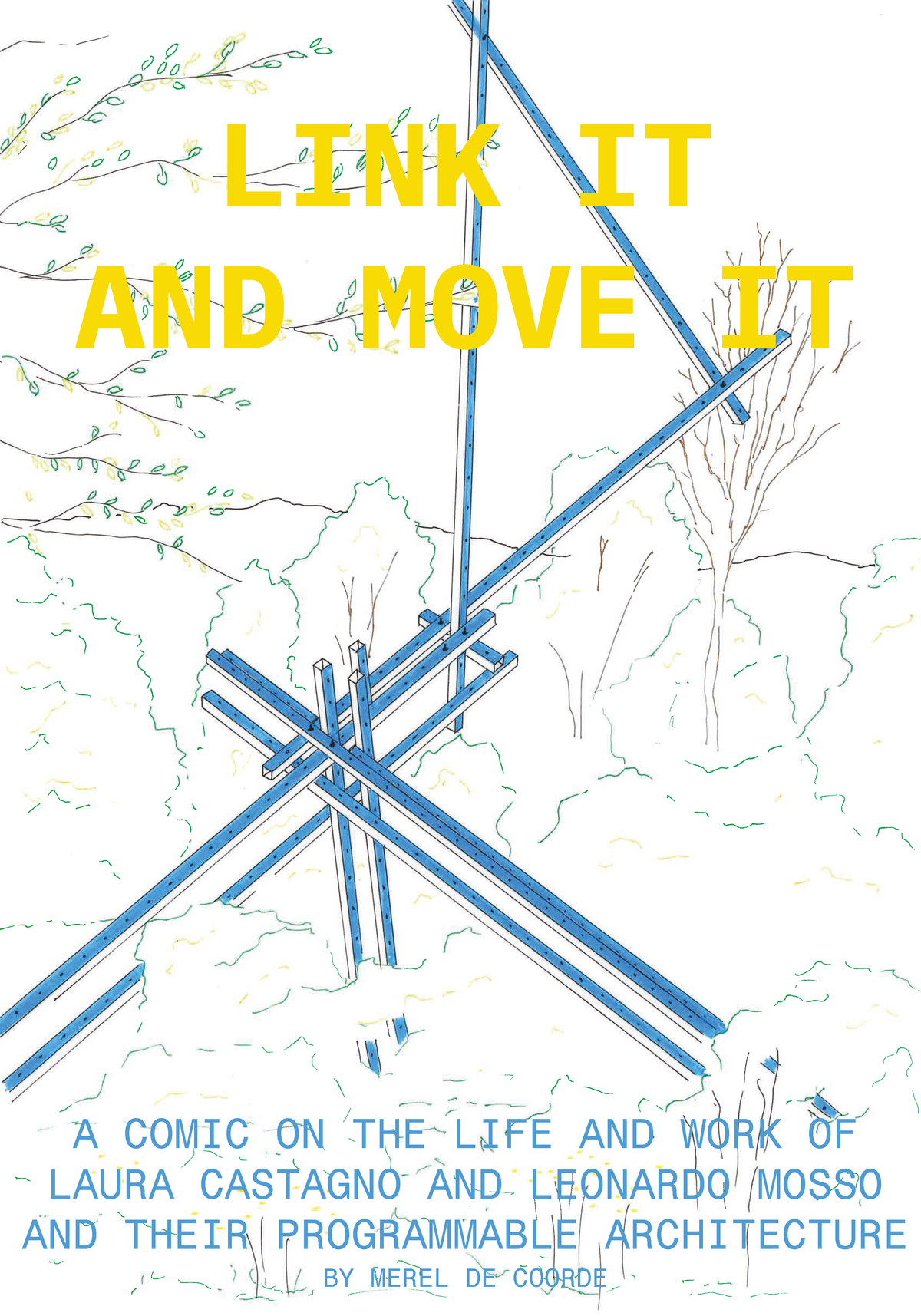
10.2024 "Link it and Move it" is a collaboration between the TUMlab at the Deutsches Museum and the IAS, TUM. Anna Boyksen Fellow Nathalie Bredella together with Grayson Bailey, Merel de Coorde and Jonah Marrs will lead a workshop exploring the history of Laura and Leonardo Mosso's "Programmable Architecture" through robotic re-enactment. The workshop will bring together architectural history through the presentation of a comic illustrating the life and work of the Mossos, followed by an Arduino workshop. Visit Program
Sophia Walk in The Twentieth Century Society
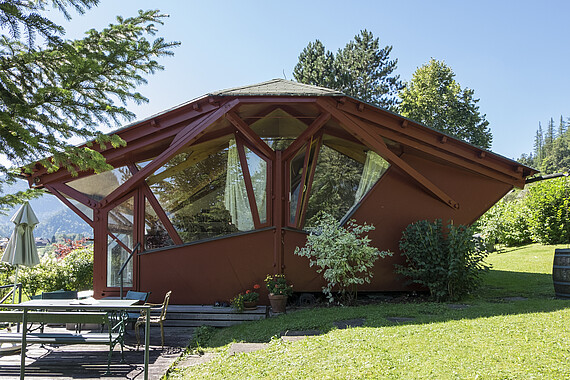
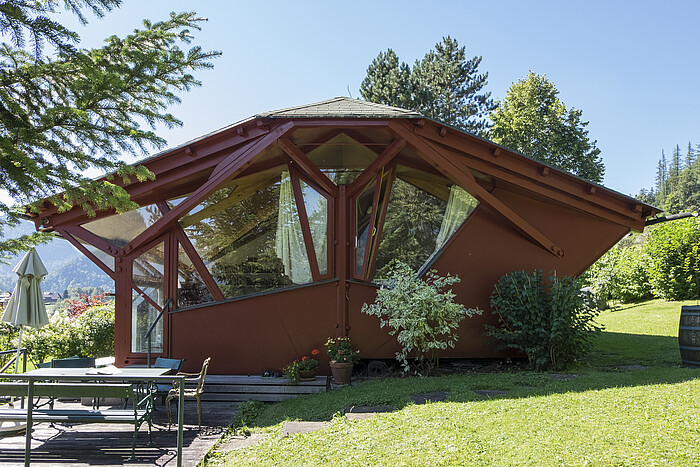
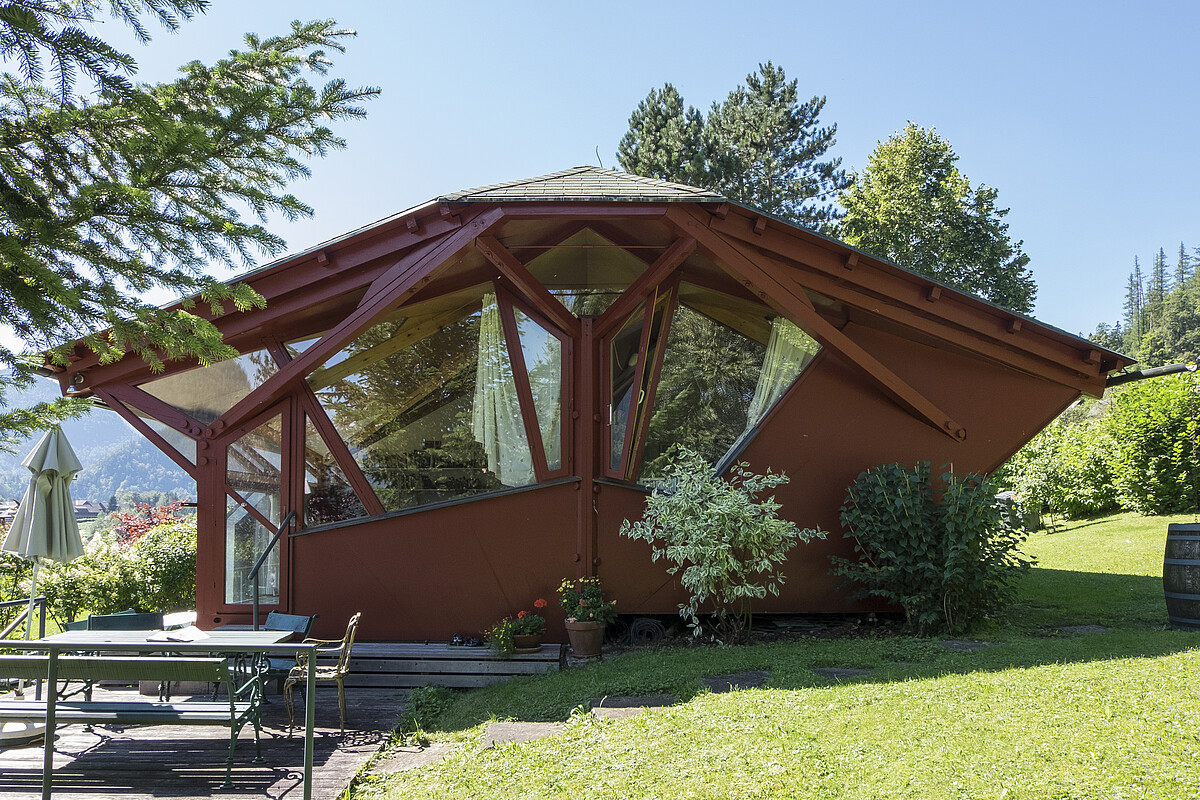
04.2024 Sophia Walk's article on Konrad Frey and Florian Beigel's Fischer House (link)was published in the series Building of the Month on the website The Twentieth Century Society.
Fischer House on Grundlsee in Austria’s Ausseerland from Konrad Frey and Florian Beigel was the first solar house in Austria, with construction beginning in 1972 and completing 1978. The fact that it has not worked perfectly stresses that environmental designs do not have to be totally successful in order for us to learn from them.
Fabricating Archaeologies
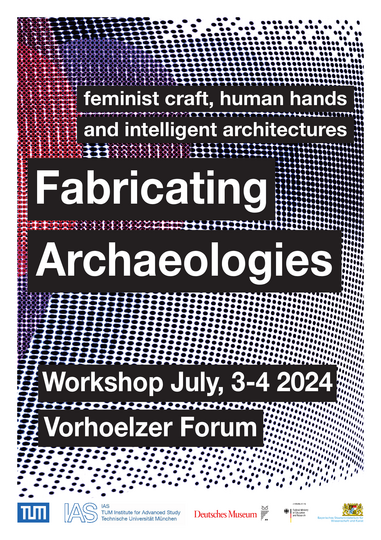


07.2024 Workshop by Anna Boyksen Fellow Nathalie Bredella with Andrea Reichenberger (TUM School of Social Sciences and Technology, History of Technology), Rudolf Seising (Deutsches Museum), in connection with Grayson Bailey („Feminist Craft“ Seminar), supported by Tabitha Goricki-Eickel and Simon Rötsch. Visit Program
Nathalie Bredella & Grayson Bailey at DESIGNSHS Workshop
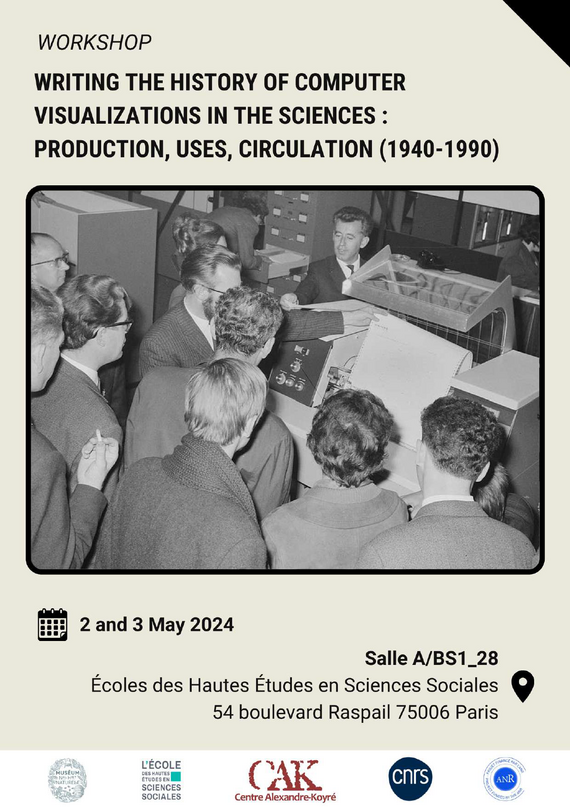
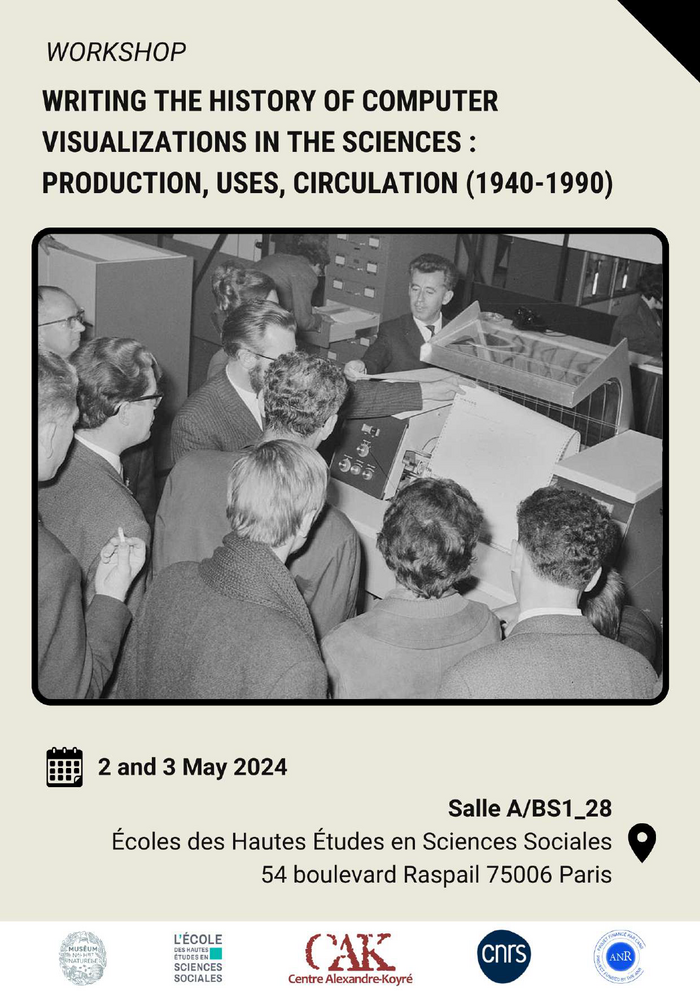
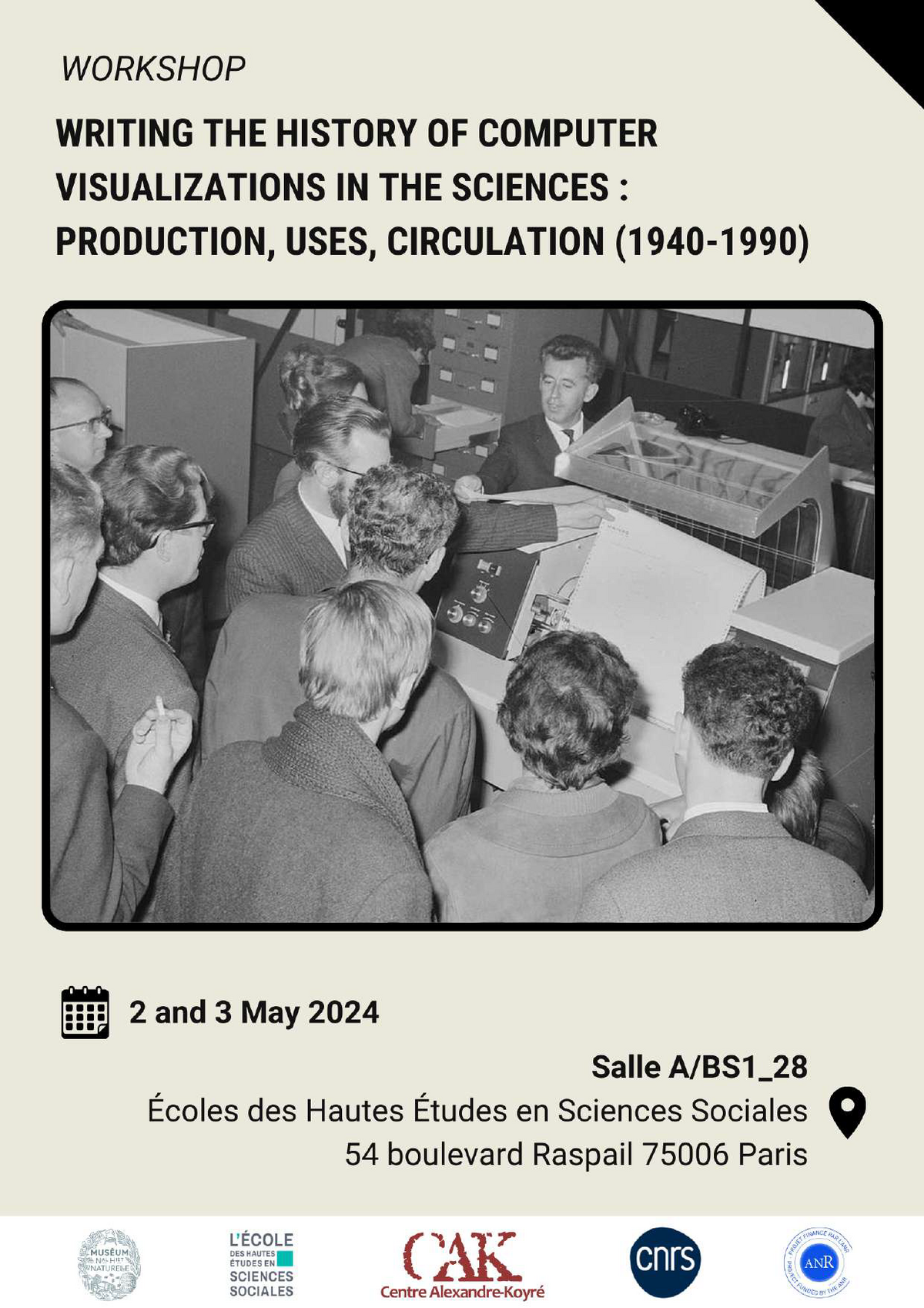
05.2024 Nathalie Bredella and Grayson Bailey presented their paper "Computational mapping techniques und knowledge cultures within Landscape, Design and Planning” at the DESIGNSHS Workshop Writing the History of the Computer Visualizations in the Sciences: Production, Uses, Circulation (1940-1990) at the École des hautes études en sciences sociales.
Architektur für Alle?!
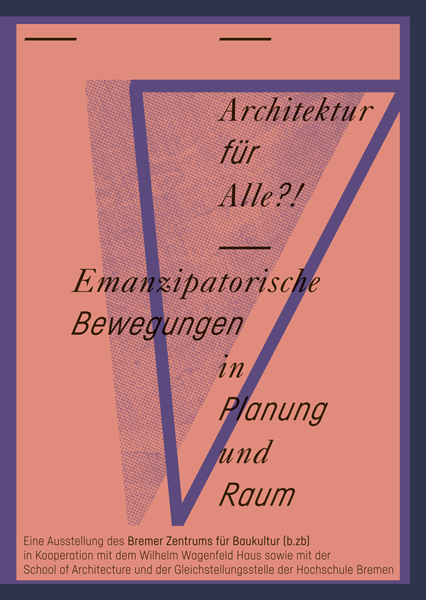


11.2023 Architektur für Alle?! Emancipatory Movments in Planning and Space
Lecture and Workshop from Insa Meyer, Céline Schmidt-Hamburger, Christian v. Wissel
Nathalie Bredella appointed fellow at TUM IAS
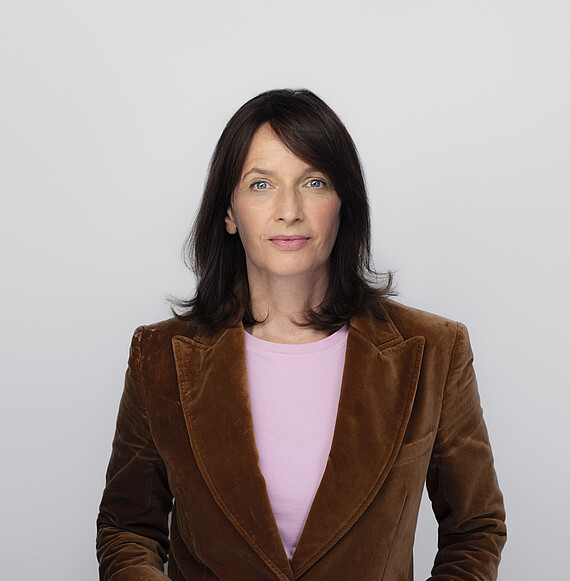
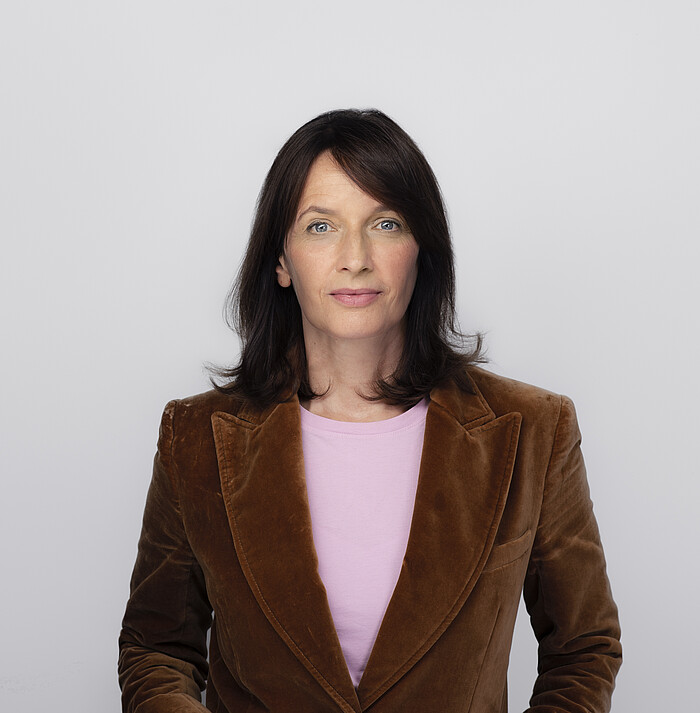
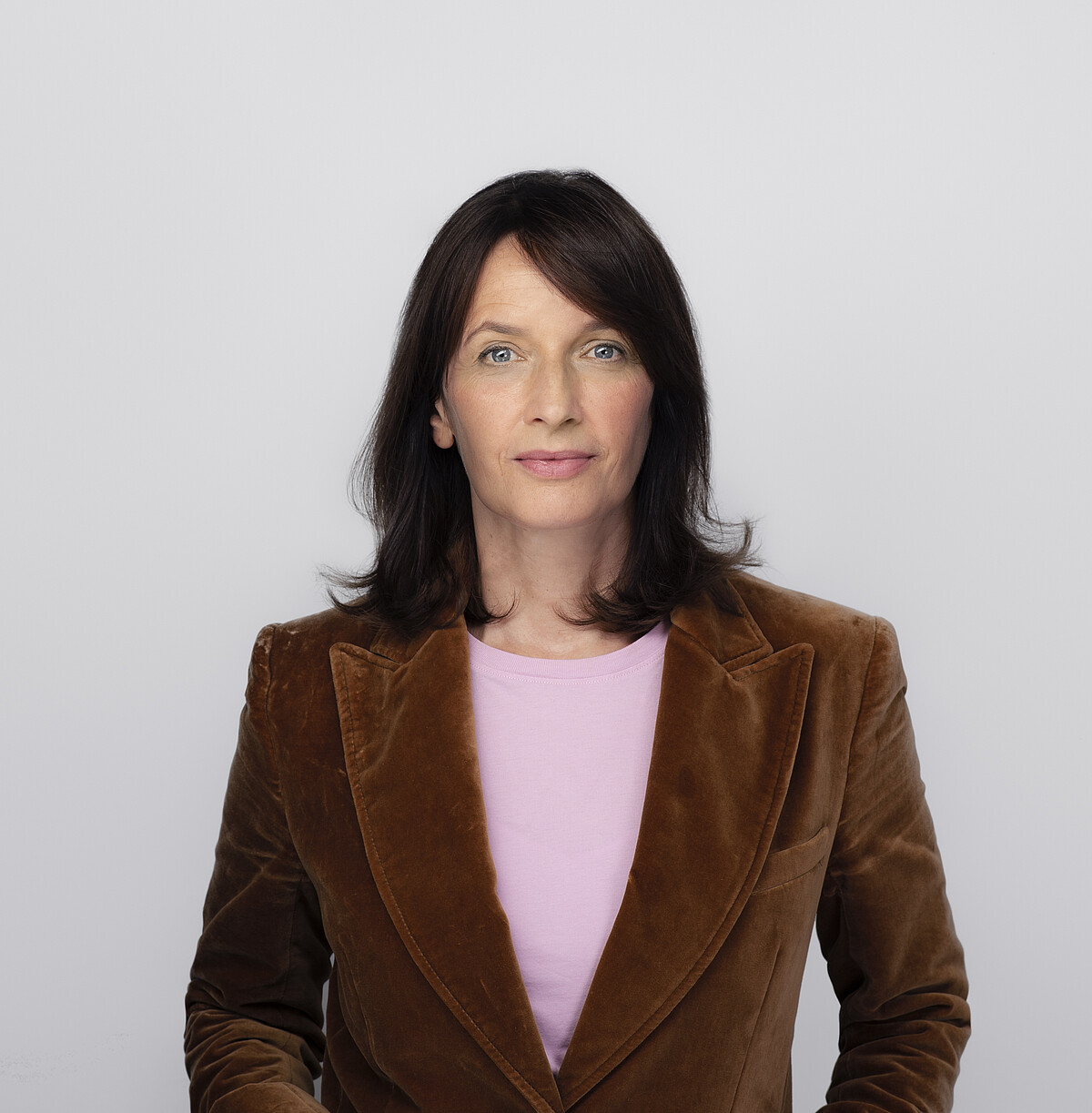
10.2023 Anna Boyksen Fellowship
Prof. Dr. Nathalie Bredella was named as the Anna Boyksen fellow in the Institute for Advanced Study (IAS) at TU München (Link). As a part of a two-year fellowship, Prof. Dr. Bredella will lead the newly created focus group Feminism and Digital Culture in Architecture.
Grayson Bailey in GAM 19
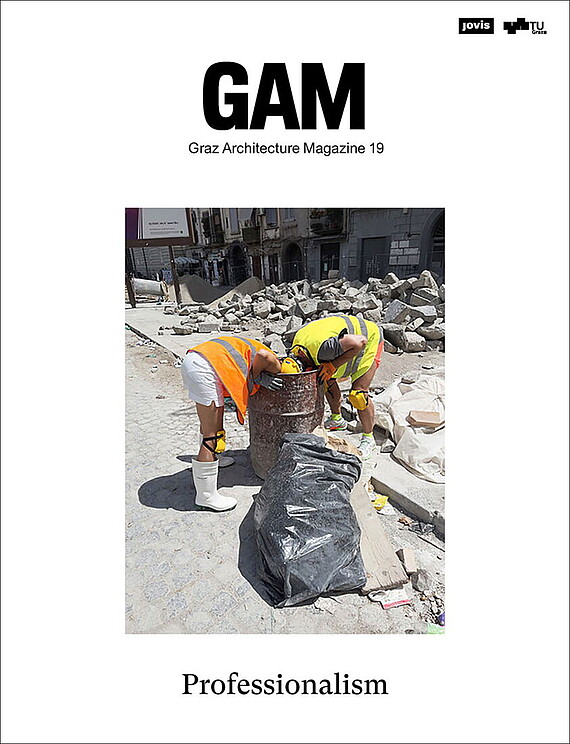
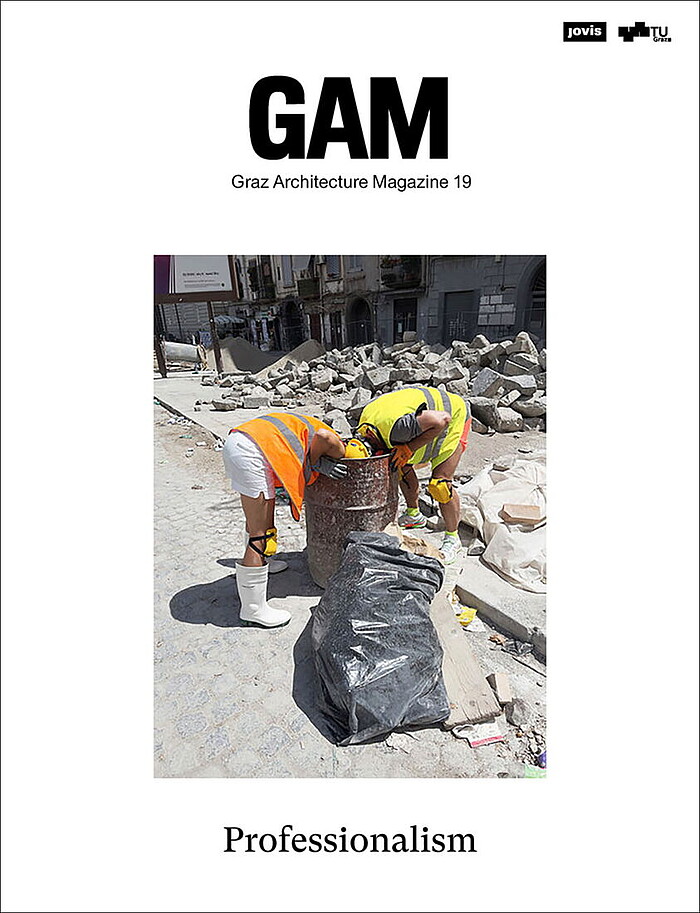
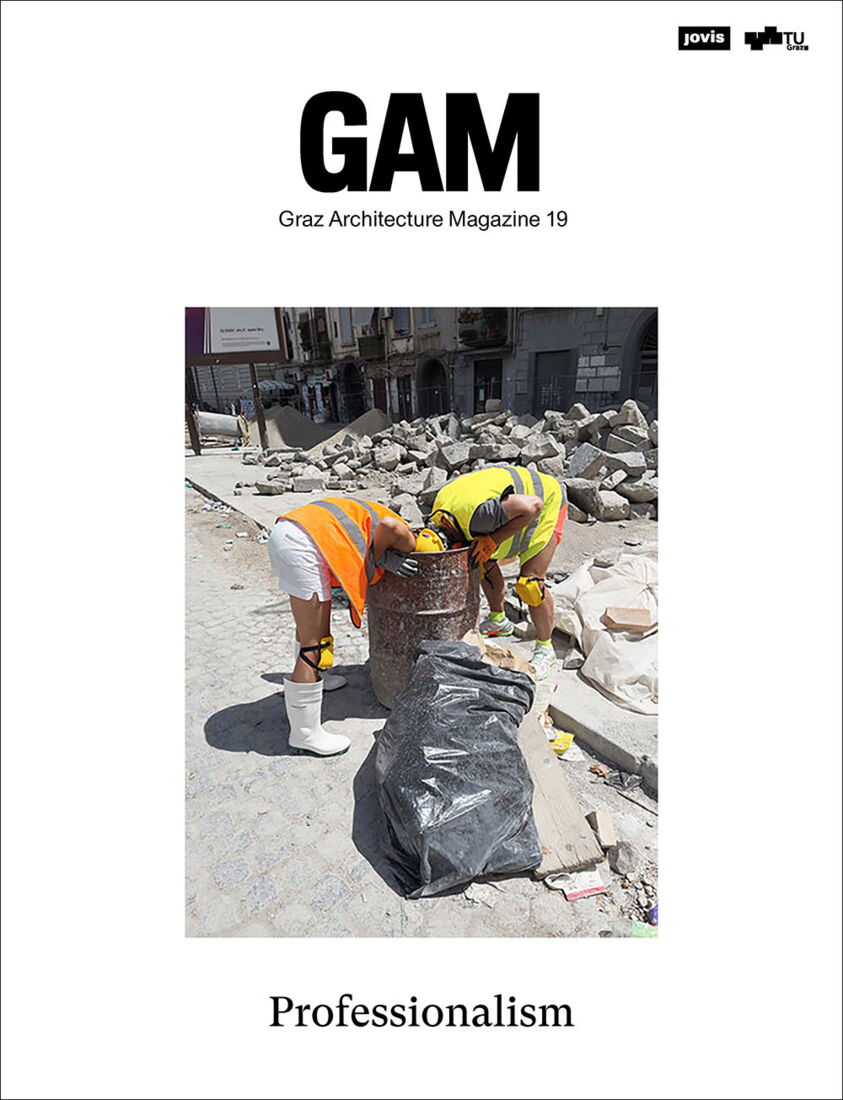
06.06.23 "Constructing the Anti-Architect" by Grayson Bailey was published in the 19th issue of Graz Architecture Magazine (GAM), which focused on the theme of "professionalism."
Utopia Computer: The “New” in Architecture?
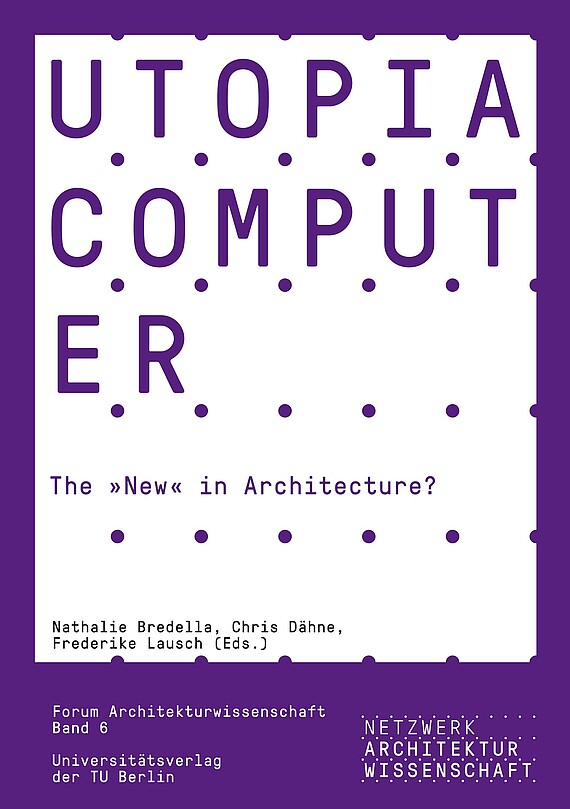
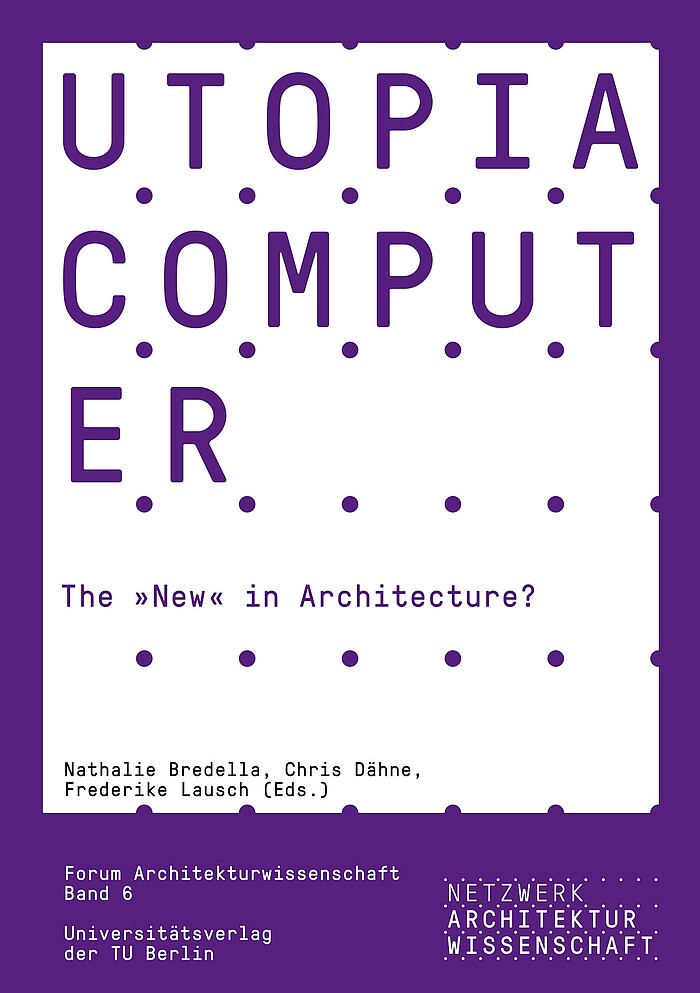
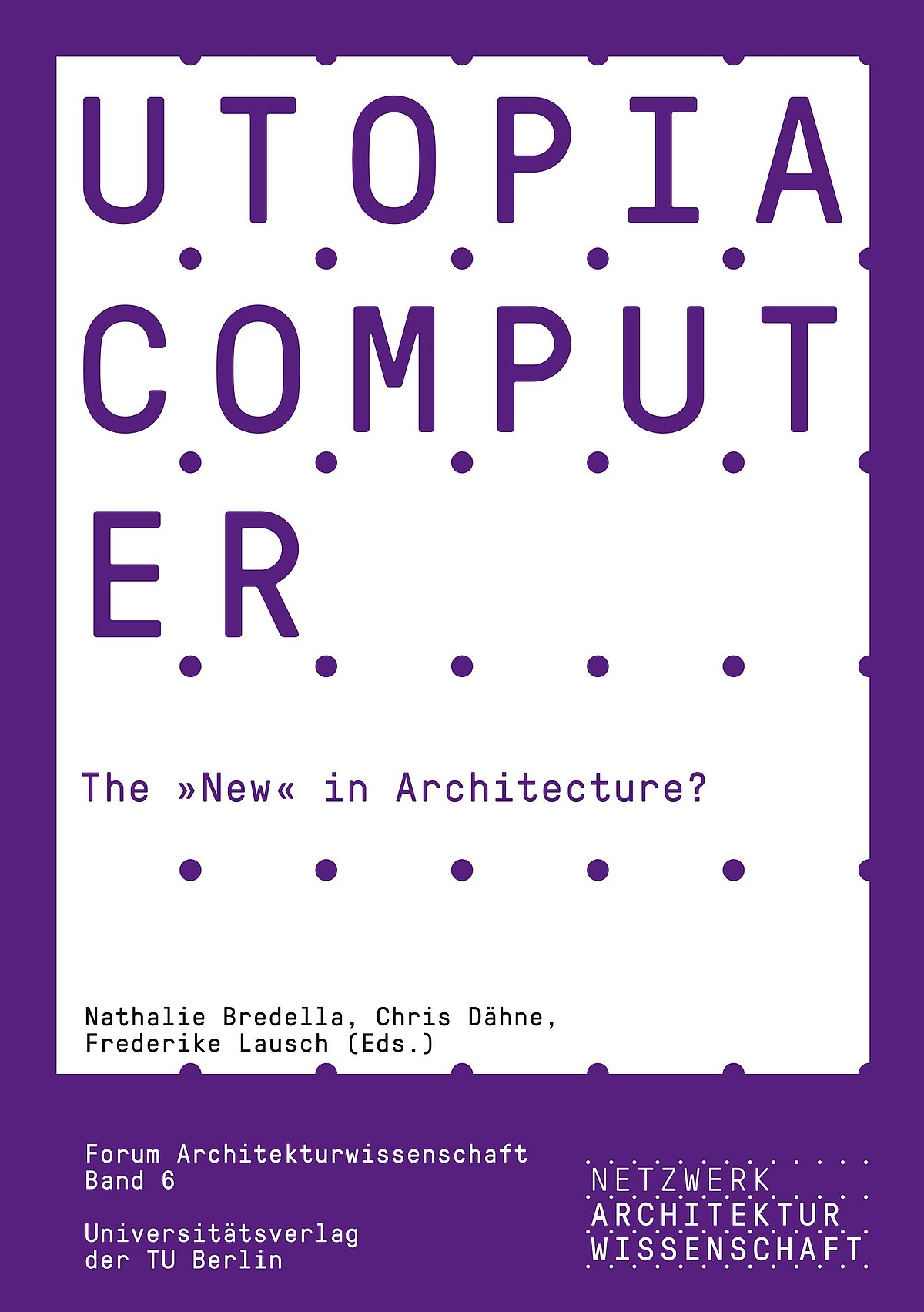
06.06.23 Utopia Computer : The "new" in Architecture? has just been released, edited by Nathalie Bredella from the Architectural Theory, Frederika Lausch and Chris Dähne. Utopia Computer addresses the euphoria and expectations associated with the introduction of the computer in architecture in the early digital age. In addition, the publication also includes a contribution by Grayson Bailey ("Pre-Requisites for Self Organization").
